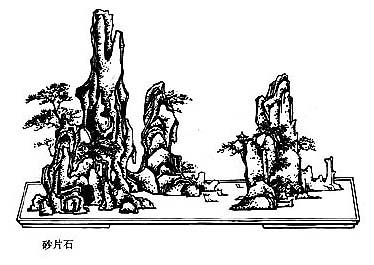Lun Yu 
 – The Analects of Confucius
– The Analects of Confucius
The Master discusses with his disciples and unveil his preoccupations with society. Tr. Legge (en), Lau (en) and Couvreur (fr).
                                       | |||||||||||||||||||||||||||||||||||||||||||||||||
| |||||||||||||||||||||||||||||||||||||||||||||||||
 |  |
Lunyu XIV. 12. (359)
Of the complete man:– a conversation with Tsze-lû.
1. Tsze-lû asked what constituted a COMPLETE man. The Master said, "Suppose a man with the knowledge of Tsang Wû-chung, the freedom from covetousness of Kung-ch'o, the bravery of Chwang of Pien, and the varied talents of Zan Ch'iû; add to these the accomplishments of the rules of propriety and music;– such a one might be reckoned a COMPLETE man."
2. He then added, "But what is the necessity for a complete man of the present day to have all these things? The man, who in the view of gain, thinks of righteousness; who in the view of danger is prepared to give up his life; and who does not forget an old agreement however far back it extends:– such a man may be reckoned a COMPLETE man."
Legge XIV.13.
Tzu-lu asked about the complete man.
The Master said, 'A man as wise as Tsang Wu-chung, as free from desires as Meng Kung-ch'uo, as courageous as Chuang-tzu of Pien and as accomplished as Jan Ch'iu, who is further refined by the rites and music, may be considered a complete man.' Then he added, 'But to be a complete man nowadays one need not be all these things. If a man remembers what is right at the sight of profit, is ready to lay down his life in the face of danger, and does not forget sentiments he has repeated all his life even after having been in straitened circum- stances for a long time, he may be said to be a complete man.'
Lau [14:12]
Tzeu lou pria Confucius de lui dire ce qu'est un homme accompli. Le Maître répondit : « Celui qui aurait la prudence de Tsang Ou tchoung, l'intégrité de Koung tch'o, le courage de Tchouang tzeu, [préfet] de Pien, l'habileté de Jen K'iou, et qui de plus cultiverait les rites et la musique, pourrait être regardé comme un homme accompli. » Confucius ajouta : « À présent, pour être un homme accompli, est-il nécessaire de réunir toutes ces qualités ? Celui qui, en présence d'un profit à retirer, se rappelle la justice ; qui, en face du danger, risque sa vie, qui, même après de longues années, n oublie pas ses engagements ; celui-là peut aussi être considéré comme un homme accompli. »
Couvreur XIV.13.

The Analects of Confucius – Lun Yu XIV. 12. (359) – Chinese off/on – Français/English
Alias the Lunyu, the Lun Yü, the Analects, les Entretiens du maître avec ses disciples.
The Book of Odes, The Analects, Great Learning, Doctrine of the Mean, Three-characters book, The Book of Changes, The Way and its Power, 300 Tang Poems, The Art of War, Thirty-Six Strategies
Welcome, help, notes, introduction, table.
Index – Contact – Top
